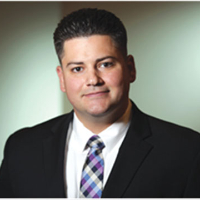Mercer County, NJ RICO Act Lawyers
Sponsored Law Firm
-
 x
x

Click For More Info:
-
Cohen & Bernstein, L.L.C.
1360 Clifton Ave #309 Clifton, NJ 07012» view mapCriminal Defense We’re In this Together!
We work hand in hand with our clients to ensure all of your questions are answered and progress through your legal issue is seamless.
800-978-7341
Not enough matches for Mercer RICO Act lawyer.
Below are all Mercer Criminal lawyers.
Douglas F Herring
✓ VERIFIEDFormer Los Angeles & Compton gang prosecutor, federal prosecutor, and state prosecutor … Now providing an aggressive criminal defense for you. As... (more)
Brian James Duff
✓ VERIFIEDI am privileged to be able to practice law in the local community where I was raised and still reside. I am proud to be able to offer quality, afforda... (more)
Robert G. Swan
✓ VERIFIEDRobert G. Swan is a former Assistant Prosecutor in Mercer County who now has a general law office that places emphasis on Criminal, Family, Divorce, B... (more)
Candyce I. Smith-Sklar
✓ VERIFIEDCandyce Sklar-Smith is a practicing Bankruptcy lawyer with over 10 years of experience. Ms. Sklar-Smith is licensed in both New Jersey & Pennsylvania.
Jason Scotto D'Aniello
✓ VERIFIEDJason Scotto D’Aniello received his Bachelors of Science degree, with honors, in International Relations and Diplomacy from Seton Hall University in... (more)
FREE CONSULTATION
CONTACT Lindsay Bernstein Clifton, NJ
Lindsay Bernstein Clifton, NJ Practice AreasExpertise
Practice AreasExpertise





